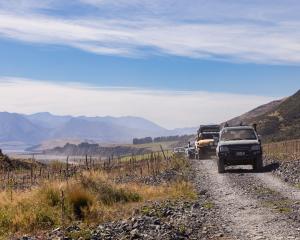Drone testing is continuing at Coastguard Sumner in an effort to innovate search and rescue operations.
The coastguard has teamed up with drone expert Daniel Manchester from construction company, Proform Group and Canterbury Air Patrol, to evaluate how eight different unmanned aircraft could best assist real-life rescue scenarios.
“Sumner coastguard is committed to looking at new technology and new methods that are appearing, which can help us save lives,” said search and rescue manager Anthony Honeybone.
Earlier this month, Manchester was flying the drones over Scarborough to create 3D maps of the terrain and spot coastguard members posing as victims on the rocks.
Manchester and Honeybone joined coastguard and air patrol members for further testing of the drone’s effectiveness.
“It’s not our normal area of knowledge. You know, as a coastguard we know boats. We’re learning from their expertise in Canterbury Air Patrol,” said Honeybone.
He hopes the coastguard will have trained six operators and successfully launched the drone programme within the next 12 months.
They will need to become qualified with the Civil Aviation Authority.
Using drones to find victims has major potential advantages over in-person search operations.
“It has thermal imaging, which picks up people’s heat source. It’s just a massive advantage in terms of finding someone quickly,” said Honeybone.

“The success rate in finding someone alive is often in speed. They might have hypothermia, so the speed of rescue is really critical for us,” he said.
The trials will continue over the coming months to determine whether the terrain in Coastguard Sumner’s jurisdiction is suitable for investing in a drone programme.
“Right now we’re seeing if we’ve got all our ducks in a row and if this is something we 100 per cent want to dedicate ourselves to,” said Honeybone.
He said a drone programme could be expensive and require contributions from the coastguard’s typical funding sources, such as Coastguard New Zealand.
The idea for drone testing came from a joint meeting with Coastguard Canterbury last year, which discussed potential technological innovations for search and rescue.













